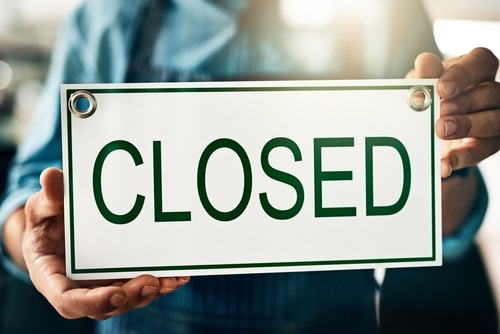HOMENEWS & INSIGHTS
What happens to intellectual property when a company is dissolved?
A company will be struck off the register if it fails to submit annual returns or otherwise fails to comply with formal requirements. Alternatively, once a company has completed the liquidation process, it will be dissolved.
When a company dissolves, one important aspect that requires careful attention, but is sometimes forgotten, is the handling of intellectual property (IP). This includes rights such as trade marks, copyright, designs, patents and even software created by employees in the company.
Before a company is officially dissolved, its IP can be sold, licensed, or transferred to another party, such as creditors, shareholders, or a third-party buyer. This is usually carried out to settle outstanding debts or maximise the value of the company’s remaining assets.
If the company undergoes a formal liquidation process, IP assets may become part of the liquidation proceedings. A liquidator will assess the value of these assets and determine how they should be distributed among creditors and remaining stakeholders. This process could involve auctioning off the rights of IP.
The company’s undisposed-of IP without any apparent owner belongs to the Crown as Bona Vacantia. This property then becomes available for someone else to buy.
Is it possible to get your IP back?
It may be possible however it is by no means easy or cheap.
Why might one want to get hold of their IP rights again?
There are many reasons, a couple of examples are:
- the IP was handled incorrectly when the company was dissolved (i.e. IP incorrectly assigned within group structures and held in wrong company which has been dissolved); or
- discoveries during the course of due diligence for merges and acquisitions which if not corrected may affect the value of the company.
What options do I have to get my IP back?
- Restore the dissolved company
Depending on how a company is ‘struck off’, there are two routes to restore a company. If the company was voluntarily struck off then to restore it, the Court Order procedure is required, and if the company was dissolved through compulsory strike-off then Administrative Restoration would be applicable.
Firstly, there are certain circumstances that are required to be met to restore a dissolved company, including:
- Were you a director or shareholder? (i.e., do you have the authority to restore?)
- Was the company struck off and dissolved within the last six years?
- Was the company trading at the time it was dissolved?
Both restoration procedures involve obtaining the consent and Bona Vacantia waiver letter from the Treasury Solicitor (who acts on behalf of the Crown), to effectively request permission to restore your company to the register and reclaim the assets within. Also, Companies House will require certain documentation to bring the company’s filings up to date, and there will be disbursements payable such as filling fees and if applicable, late filing penalties.
If you decide to restore the company, the company comes back to life and Bona Vacantia no longer exists. The intention of the court’s procedure is to treat the company as if it had never been dissolved and the assets will belong to the company again. However, the benefit of this all very much depends on whether the Crown has disposed of the asset in the time it has owned it.
You will be required to pay any associated Solicitor fees as well as court fees of approximately £300.
- Application to the Crown via the Bona Vacantia Department (“BVD”)
You may be able to purchase the IP back from the Crown. You will have to evidence the company owned the IP, explain why you want to purchase it and provide any necessary evidence. The Crown does not have to sell the IP back to you, but in the event they do, the Crown has a duty to get the best market value for the asset if it chooses to assign it, and has no obligation to assign it to you, or at all. In cases where the IP right seems to have minimal value the Crown will nevertheless require a stated minimum fee to be paid (for example £1000 per trade mark plus VAT). The Crown may alternatively require a petitioner to pay for an expert valuation. BVD will also charge costs £300 plus VAT per asset.
BVD will not transfer the IP with any title guarantee, goodwill or provide any representations or warranties in connection with it either express or implied. This means that when BVD sell rights they do not give any guarantee or assurance that the Crown has the legal right to sell them (i.e. if the IP were ever assigned or licensed to a third party to use) or provide any assurance about past disputes or other matters that might be relevant to a purchaser. You will have to deal with any subsequent disputes that may arise. You may be aware of the history of the IP, but if not, this is something to bear in mind.
You can request to purchase the IP by filling out a BVC8 form and sending it to bvcompanies@governmentalegal.gov.uk. However, we advise seeking legal assistance to guide you through the process.
Next Steps
If you’re navigating the dissolution process or concerned about your IP during this transition, it’s essential to consult with legal professionals who specialise in IP. Without proper management, valuable IP assets risk being lost entirely.
We’re here to help. Reach out to our team of Intellectual Property experts today for tailored advice on safeguarding or transferring IP during a company dissolution.
This article is for general information only and does not constitute legal or professional advice. Please note that the law may have changed since this article was published.
Share article
Our offices
Contact Us
5 Poole Road
Bournemouth
Dorset
BH2 5QL
Tel 01202 377800
9 Poole Road
Bournemouth
Dorset
BH2 5QR
01202 377800


